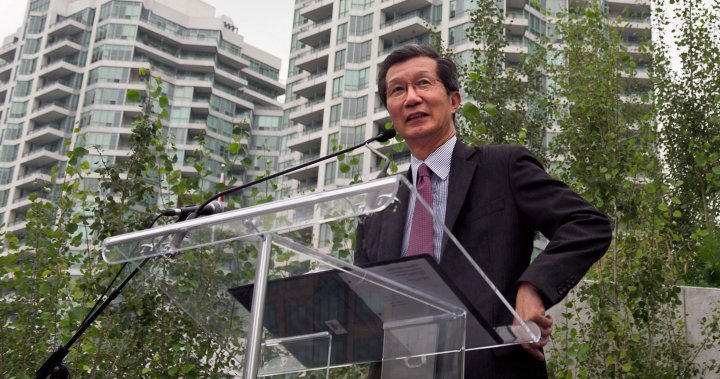The Dismissal of Michael Chan’s Libel Lawsuit: A Decade-Long Saga Concludes
The Ontario Superior Court has dismissed Michael Chan’s libel lawsuit against the Globe and Mail, bringing an end to a legal battle that has spanned nearly a decade. The case stemmed from a 2015 Globe and Mail article that reported on concerns raised by the Canadian Security Intelligence Service (CSIS) regarding Chan’s alleged close ties to Chinese diplomats. The article suggested that CSIS was worried about Chan’s susceptibility to influence from Beijing. Chan vehemently denied these allegations, initiating the libel suit against the Globe and Mail, its editor-in-chief, publisher, and the reporter who authored the piece. The court’s decision to dismiss the case comes after Chan failed to submit required documentation within the stipulated timeframe.
The Genesis of the Controversy: Allegations of Foreign Influence and Media Scrutiny
The 2015 Globe and Mail article ignited a firestorm of controversy, particularly within the context of the then-emerging concerns surrounding foreign interference in Canadian politics. The report alleged that CSIS had deemed Chan’s relationship with the Chinese consulate in Toronto to be excessively close, raising concerns about potential undue influence. Furthermore, the article revealed that CSIS had even gone so far as to warn the Ontario provincial government about their concerns. This reporting, while met with skepticism in some quarters, especially among Liberal supporters, foreshadowed the broader national conversation that would later dominate Canadian political discourse. The article drew upon previous public statements made by former CSIS director Richard Fadden, who had warned about the potential influence of foreign governments on Canadian officials. These assertions, initially controversial, have since gained more credence due to subsequent reports and inquiries into foreign interference.
The Evolution of National Security Concerns: From Initial Skepticism to Heightened Awareness
The landscape of national security concerns in Canada has shifted dramatically since the initial 2015 report. While concerns about foreign interference were initially met with some skepticism, subsequent investigations and reporting, including contributions from Global News and the Globe and Mail, have brought the issue to the forefront of public consciousness. Multiple federal inquiries have been launched to investigate alleged foreign interference in the 2019 and 2021 federal elections, underscoring the growing recognition of this threat. The ongoing inquiry led by Justice Marie-Josée Hogue, which recently concluded public hearings, is expected to deliver its final report by the end of 2024, further shedding light on the extent of foreign interference activities.
CSIS and the Growing Threat of Chinese Interference: A Persistent National Security Challenge
Canadian intelligence agencies, particularly CSIS, have increasingly identified the People’s Republic of China (PRC) as a significant source of foreign interference in Canadian affairs. CSIS reports have highlighted the PRC’s use of various tactics, including clandestine operations and influence campaigns targeting all levels of government, Indigenous communities, and civil society organizations. These activities aim to advance the PRC’s national interests, potentially undermining Canada’s democratic processes and institutions. The ongoing concern about Chinese interference has become a central focus for Canadian security agencies, prompting increased vigilance and efforts to counter these threats.
Chan’s Renewed Legal Battle: Targeting CSIS and Leaked Intelligence
Despite the dismissal of his libel suit against the Globe and Mail, Michael Chan has launched a new lawsuit targeting CSIS, its former director David Vigneault, unnamed CSIS officials, and several journalists. This legal action alleges the leaking of classified information that purportedly harmed Canadian politicians of Chinese descent. The lawsuit seeks substantial damages, further fueling the ongoing debate surrounding national security, press freedom, and the protection of classified information. Chan contends that the leaks have unfairly targeted politicians of Chinese ancestry and caused significant reputational damage.
The Intersection of National Security and Press Freedom: A Complex and Evolving Landscape
The interplay between national security concerns and the freedom of the press remains a complex and evolving issue. While the need to protect classified information is paramount, the ability of journalists to report on matters of public interest, including potential foreign interference, is also crucial for a healthy democracy. Balancing these competing interests requires careful consideration and ongoing dialogue. The outcomes of ongoing investigations and legal proceedings will likely shape the future landscape of national security reporting in Canada, impacting the ability of journalists to hold powerful institutions accountable while safeguarding sensitive information vital to national security.










